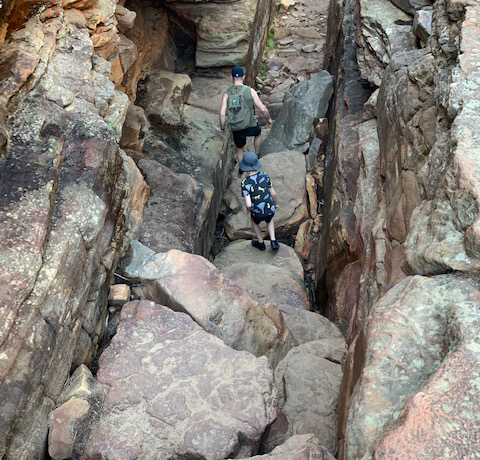19 Aug 2020

Understanding the universal and local risk factors for cognitive decline is what drives Dr Darren Lipnicki, Study Coordinator of CHeBA’s COSMIC consortium. COSMIC brings together researchers and data from studies on ageing across more than 30 countries, to identify risk and protective factors associated with cognitive decline and dementia and compare these around the world. Dr Lipnicki hopes that through this research CHeBA is able to identify modifiable lifestyle factors to assist individuals maintain their cognitive health as they age.
How did you get into researching the ageing brain?
I started in research while doing my Honours in Psychology; I turned down a scholarship in Tasmania for a part-time job in a psychophysiology lab at Murdoch University. The research involved administering pain stimuli to people and asking how much it hurt. It was interesting how some people would say they barely felt anything while others would claim it was the worst pain they have ever endured. I have since also researched how cognition is affected by body posture and by prolonged bed rest that simulates weightlessness.
Did you experience a ‘defining moment’ which led you to this field?
Not a ‘defining moment’ per se. I was moving to Sydney from Berlin and a job in dementia research was advertised at CHeBA that seemed to be a nice intersection of my interests and research experience in psychology, physiology and neurology.
I had done a little bit of research in the area previously and understood the importance and value of this field. Recent dementia diagnosis in the family has reinforced this importance on a personal level.

Do you have any personal interests or activities which are protective behaviours against cognitive decline?
I run first thing every weekday morning, go to the gym a few days a week for resistance training, and try to maintain a healthy diet. I also enjoy completing cryptic crosswords daily and meditate when time permits. I keep intellectually stimulated through reading and listening to podcasts while exercising or doing household chores, often about the philosophy of consciousness - from ancient understanding to contemporary ideas.
What are you currently researching?
My current projects are focused on how a loss of smell relates to future dementia as well as mortality, and on the relationship between dementia and cancer, including skin cancer. I also help run numerous projects in which other researchers are using data from COSMIC to explore a range of risk and protective factors for cognitive decline and dementia.
Why is your research important?
There is currently no cure for dementia, but there are lifestyle and other changes that people can adopt to minimise their risk.
It is crucial that we comprehensively identify and fully understand the modifiable risk and protective factors for dementia.
It is also important to do this on a global scale, as the factors or their strength of association with dementia might differ among different populations around the world.
What do you love about working for CHeBA?
Working with people from different backgrounds towards a common goal, facilitated by camaraderie and a generous willingness to help each other. I also love how my role as Study Co-ordinator of COSMIC means I experience this on a global scale, liaising with people in many countries around the world every day and bringing them together to work towards achieving healthy cognitive ageing for all.
What is the ultimate hope you have for your research?
To identify and understand the things people can do that most optimally minimise their chances of getting dementia.
This interview was undertaken during the COVID-19 self-isolation period. Dr Darren Lipnicki found that re-connecting with old friends and contributing to a creative writing group exploring the speculative impacts of COVID-19 helped keep him socially active while physically isolated. His trusty red kettle-bell helped with the gym closures.
Donations are fundamental for critical research to continue following COVID-19.
If you would like to discuss supporting Dr Lipnicki's work specifically, or would like information
on leaving a legacy via a Gift in your Will, please contact h.douglass@unsw.edu.au.

Dr Darren Lipnicki is a Research Fellow and Study Coordinator of CHeBA’s COSMIC Study. Dr Lipnicki holds a Bachelor of Science in Physiology and Pharmacology from the University of Western Australia, a Bachelor of Arts with first class Honours in Psychology from Murdoch University and a PhD in Psychology from the Australian National University (ANU). He has also worked for the Centre for Mental Health Research at ANU and held a Humboldt Research Fellowship at the Berlin Centre for Space Medicine. He is married and has a young son.
